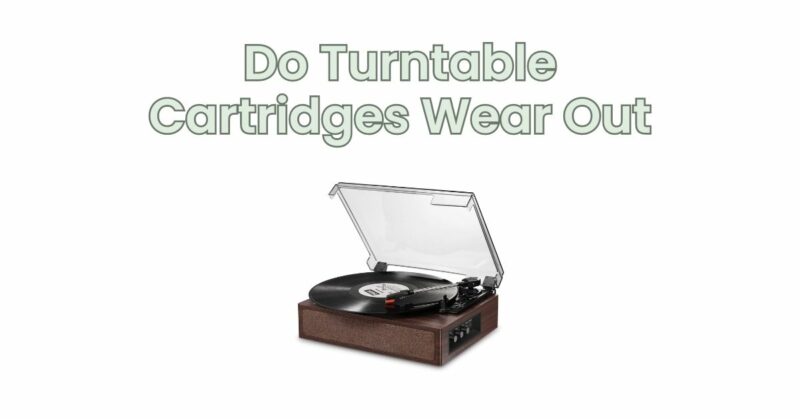Turntable cartridges play a critical role in the reproduction of sound from vinyl records. As the component responsible for tracking the grooves and converting mechanical vibrations into electrical signals, it’s natural to wonder if turntable cartridges wear out over time. In this article, we will explore the lifespan of turntable cartridges, factors that can affect their longevity, signs of cartridge wear, and tips for maintenance to ensure optimal performance and longevity.
Lifespan of Turntable Cartridges:
Turntable cartridges are delicate devices that can last for a significant period with proper care and maintenance. While they are not inherently designed to wear out, various factors can affect their lifespan:
- Usage and Playing Time: The more you use your turntable and play records, the more wear the cartridge undergoes. Continuous use over extended periods can eventually impact the cartridge’s performance.
- Record Condition: Playing records with excessive dirt, dust, or debris can cause additional wear on the stylus and cartridge. Poorly maintained records or those with significant scratches can accelerate cartridge wear.
- Tracking Force and Alignment: Incorrect tracking force and misaligned cartridges can cause excessive wear. It’s crucial to set the tracking force within the manufacturer’s recommended range and align the cartridge properly to ensure optimal tracking.
Signs of Cartridge Wear:
While turntable cartridges don’t have a definitive expiration date, several signs may indicate wear or degradation:
- Audible Changes: A worn-out cartridge may exhibit changes in sound quality. You may notice reduced clarity, loss of high-frequency response, increased surface noise, or distortion.
- Tracking Issues: Difficulty in tracking the grooves, skipping, or the stylus jumping out of the grooves are indications of potential cartridge wear.
- Visual Examination: Inspect the stylus under a magnifying glass or with a stylus microscope. Look for signs of excessive wear, such as a visibly worn or damaged stylus tip.
Maintenance and Care:
Proper maintenance can significantly extend the lifespan and performance of your turntable cartridge:
- Clean Records: Regularly clean your records to remove dust, dirt, and debris that can affect the stylus and cartridge. Use a carbon fiber brush, record cleaning solution, or a record cleaning machine to maintain clean records.
- Stylus Care: Clean the stylus regularly using a stylus brush or a specialized cleaning solution. Brush gently from back to front to remove accumulated debris without applying excessive pressure.
- Correct Tracking Force: Set the tracking force within the cartridge manufacturer’s recommended range. Regularly check and adjust the tracking force as needed.
- Proper Alignment: Ensure the cartridge is properly aligned to achieve accurate tracking. Improper alignment can cause premature wear and compromised sound quality.
- Replacement Stylus or Cartridge: Consider replacing the stylus when it shows signs of significant wear or damage. In some cases, replacing the entire cartridge may be necessary. Follow the manufacturer’s guidelines or consult with a professional for proper installation.
Conclusion:
While turntable cartridges do not have an expiration date, they can experience wear and degradation over time. Factors such as usage, record condition, tracking force, and alignment can affect their lifespan. Regular maintenance, proper care, and adherence to manufacturer guidelines for tracking force and alignment are essential for prolonging cartridge lifespan and preserving sound quality. If you notice signs of wear or a decline in performance, consider replacing the stylus or cartridge. By practicing good maintenance habits and taking care of your turntable cartridges, you can enjoy optimal sound reproduction and extend their lifespan for years of enjoyable vinyl listening.


